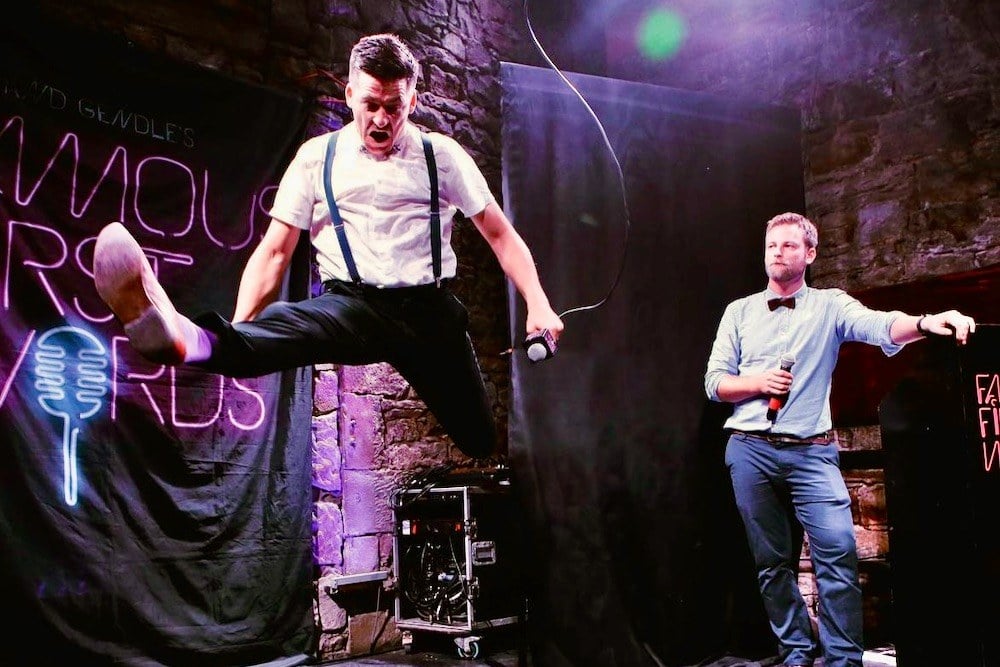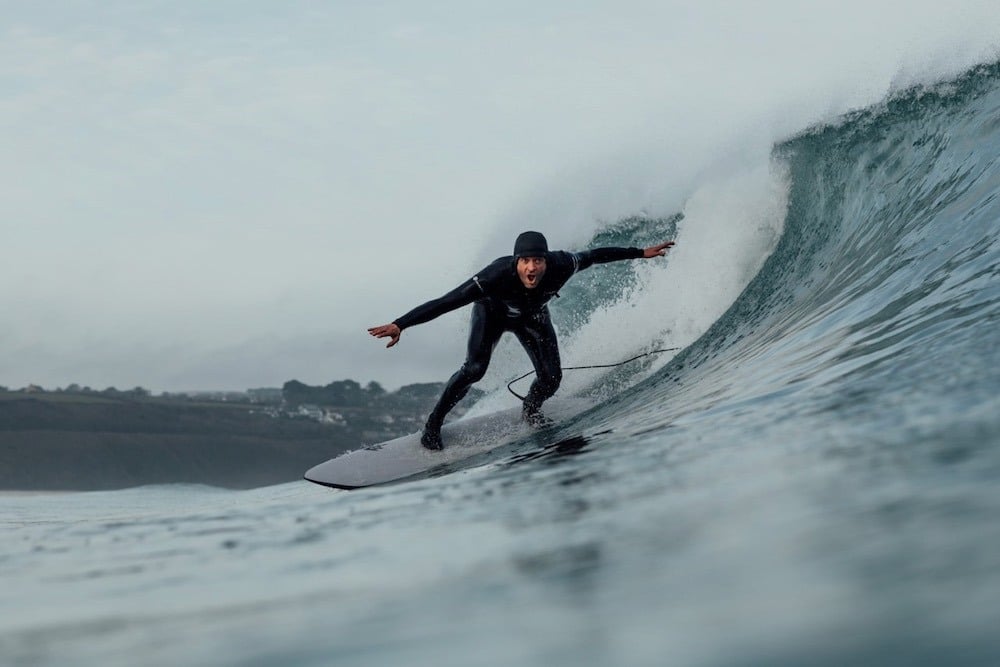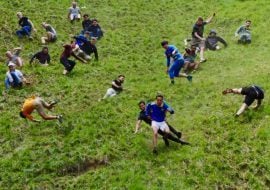Paul Taublieb, Award-Winning Action Sports Filmmaker
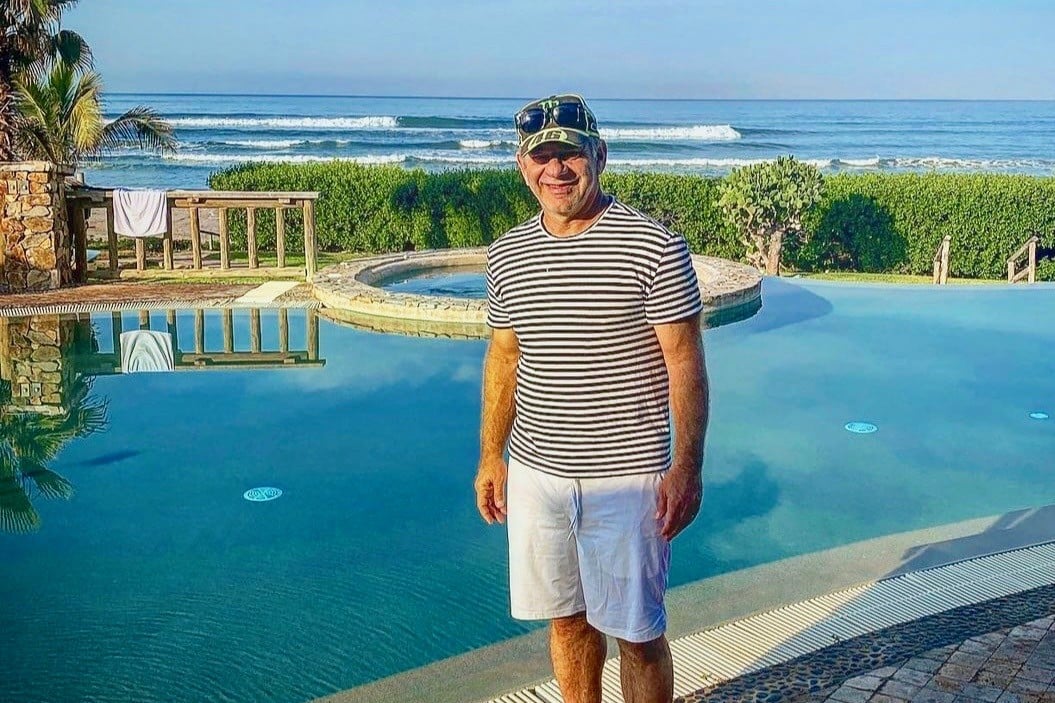

Paul Taublieb is a Multiple Emmy Award Winning Action Sports Filmmaker, Producer and Director.
Growing up in New York Paul Taublieb started off his career writing articles for Surfing Magazine. This led to some years in journalism, from editing a weekly newspaper in North San Diego country to moving back to NY and working for business trade magazines to US Magazine to writing a nationally-syndicated newspaper column about the movies.
Paul was hired by ESPN as a consultant to write the white paper that became the X Games, and on one career path that brought the sport of freestyle motocross to the X Games which he produced for 16 years while also literally inventing two of the disciplines.
The other path was creating content, which led him to be the only two-time emmy award filmmaker in action sports, having made the ESPN 30 for 30 film, “Hawaiian: The Legend of Eddie Aikau” and the Netflix film “Unchained: The Untold Story of Freestyle Motocross”, as well as other feature docs including “Fastest” and “Blood Line: The Life and Times of Brian Deegan.”
Paul’s most recent documentary “Blink of an Eye,” is now being made into a feature film with an academy-award winning director. For the last 16 years he has been under contract to Monster Energy serving as the media advisor and content creator, and he is currently making “Pay Dirt: the History of Supercross” for Monster.
Paul Taublieb Rad Season Podcast Episode
Surfing in New York
Oli Russell-Cowan: Where did the surfing bug come from? How did that all begin?
Paul Taublieb: Everything I’ve done in my career all stems from surfing.
It’s a bit of a funny story. When I was a young kid my parents took me to see the movie The Endless Summer. I was eight years old and I was a swimmer. At that point I was a competitive swimmer and dreamed of going to the Olympics or whatever.
I wasn’t great at swimming. But it seems sort of pointless and dataistic that you just go back and forth in a pool and never get anywhere. It just weighed on my mind even as a young kid.
 The Sisyphean effort that was involved that didn’t really have a lot of pleasure and at the end of the day, you ended up where you started. I saw the surf movie and I thought, well, I’m a little kid and my dad has a boring job. He’s an accountant, my mother sells insurance.
The Sisyphean effort that was involved that didn’t really have a lot of pleasure and at the end of the day, you ended up where you started. I saw the surf movie and I thought, well, I’m a little kid and my dad has a boring job. He’s an accountant, my mother sells insurance.
I thought the guys in the movie were the equivalent to my parents, they travel around the world and see these cool things and they ride waves, I want to do that.
This is pre internet and pre cable TV so seeing Africa and even Hawaii was all exotic and crazy.
So I convinced my parents to take me to a little beach called Gilgo Beach in New York, which is this little Malibu or New York’s version of it, people hanging around on the beach with straw hats and pretending to build fake San Clemente thatched huts type thing.
I went and rode a few waves. I was too young to understand that it didn’t appear to be a career path. Here’s my father who had worked his way out of Brooklyn. We had Holocaust victims in our family, very traditional Jewish Long Island, the Graduate sort of world I grew up in.
The feeling was unbelievable, the uniqueness of it, the thrill of it, and then it just felt, wow, I can swim, meaning I could paddle and I was in fairly decent shape. It seemed like this is my purpose to go do this thing, not realizing that it sort of wasn’t a business. But of course, it became one, it really became the foundation of everything I’ve done. So that’s how I got started.
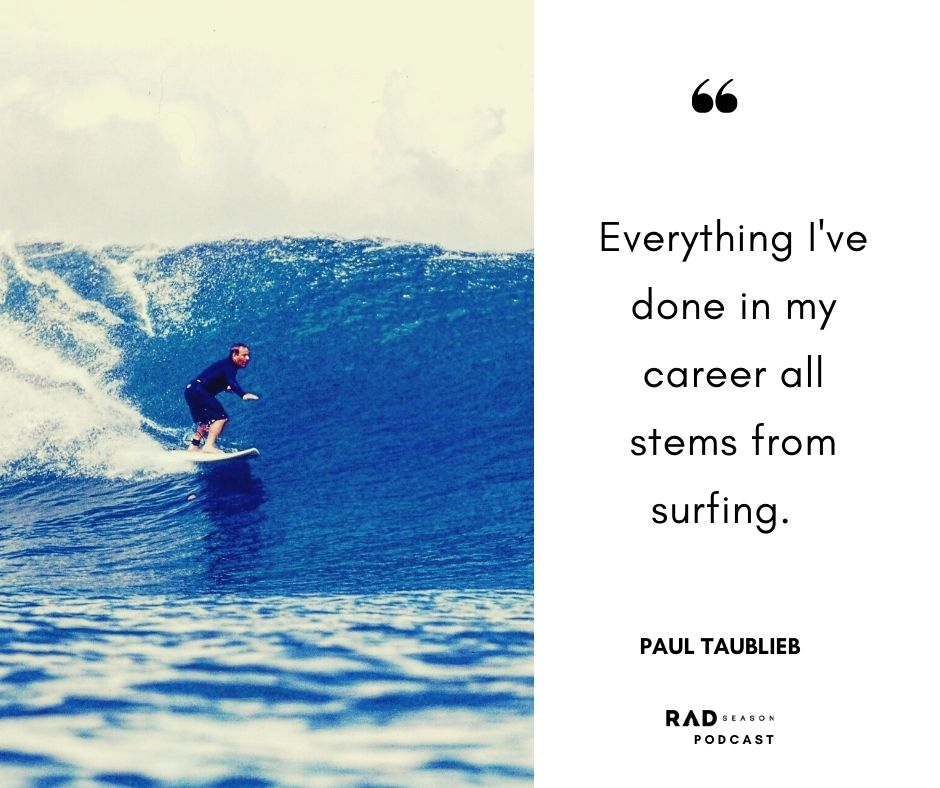
For many years, my parents were very upset that they ever took me to see the movie, till later on, when they saw that it actually led to an actual business.
In those days, very much unlike today, surfing was considered degenerate, drug infested thing, you’re gonna go to jail, your life’s gonna be ruined, and so on and so forth. It wasn’t the way it is now. There was no industry it just seemed like a pointless activity, and really, truly countercultural at the time. So that’s how I got started.
Writing for Surfing Magazine
I was also sort of a literary type. I used to read books and write poetry. I was reading Surfing Magazine, I wrote a letter to Dave Gilovich, who is still an icon in the industry. He runs all the content for Surfline.
This is many, many years ago, I’m talking decades. I said, I want to write an article and I wrote an article about New York surfing and that began my career as a writer, which led to all the journalism I went on to do and started surfing magazine.
Oli Russell-Cowan: Was that in high school?
Paul Taublieb: That was in high school. New York is certainly not the epicenter of surfing, it’s big now, but in those days, it was really an outpost.
So they were grateful to have somebody who apparently could put the semblance of a sentence together writing out of New York, because there wasn’t a pool of people.
We had a famous surfer there named Ricky Rasmussen who went on to have a very sorted end of his life murdered in Harlem. He was US champion. It is a project I’m looking into, it’s early in development. So there was sort of a little bit of a star power, Ricky starred in different TV shows and early surf movies.
Getting into Filming
Oli Russell-Cowan: when did you start taking it from writing to put it on film?
Paul Taublieb: When VHS came along most new entertainment technology begins with pornography. Right? That’s who drives early adapters, because there’s a fanaticism to it. I guess we’ll leave it at that. And so that’s happened with home video, the old VCRs was that.
I was fascinated by VCRs because we used to have to wait for surf movies to come with four walls right into the VFW Hall, you’d go see Five Summer Stories on a big screen.
Then video came along. And now I could buy these videos for $70 and watch it at home. I thought, wow, this is going to catch on. I really did have a sense that this was this idea of home video, manipulating your media for yourself was going to be a big deal.
I was working at Us magazine at the time. So I became very familiar with the home video industry. I wrote the first column about home video in any consumer magazine. I worked that out. Then I thought I wanted to make my own videos. At that time surfing was not what it is today. It wasn’t as commercial.
I was doing a self version of sports specific training. I lived in Manhattan. I couldn’t get in the ocean that often. I would work out and first I found although I was training, I still can’t surf very well which didn’t make sense.
There wasn’t the sophistication of exercise like there is today. So I developed an exercise program for surfing, then I thought, well, I’ll apply this to another sport. We came up with tennis, and we did a tennis video called, “Tennis Workout to Win”.
Theoretically, it was going to be a series of how to train for specific sports. It didn’t really work financially. But I learned how to make a video. I found investors, I understood the industry. Today there’s all kinds of surfing training programs available but then it was a ridiculous concept. So that’s got me into video.
I found writing is a solitary profession, even if you’re at a magazine like I was. I wrote for The Washington Post and the Village Voice and continued to write for Surfer Magazine. You sit in a room, the windows are down and you’ve spent hours and hours. Writing is a very difficult thing to do it at a high level. I had a certain amount of ability, but not a masterful ability as a writer and I missed interaction with people.
When I discovered video production and directing, It’s really collaborative. I love that process of different people. This guy’s an editor, this guy’s a lighting guy, so on and so forth, bringing it together, the business side, all driven with a story basis. Before we started, we had a little conversation and you asked how did I get involved? How do all these disparate things link together? And all it’s very simple. It’s about a story.
If you can tell a good story in some fashion, you can apply it in many ways.
That includes live events. If you think of it as a story, not as a functionality event, you then create a story in the live event and one thing led to another from there.

Reporter at Us Magazine
Oli Russell-Cowan: Were you freelancing writing at home or going to an office every day?
Paul Taublieb: In the early days I worked at Us magazine as a full time senior editor and I was the one person who did the non-celebrity stuff. I did some investigative reporting. I investigated on cults. I had kind of free rein to do stories about snake handlers, cult leaders, drug dealers and fascinating characters.
They were just happy to let me go off while they did the you know, the Dynasty stories and everything else. They wanted one non-celebrity piece. So it was pretty wonderful that I got to do that for a few years with great editors in an unusual setting.
Video Action Sports (VAS)
Eventually I became a producer. I got involved through different people I was working with at ESPN. I also was a consultant and a part owner on the board of directors of a company called Video Action Sports (VAS).
They were the only company distributing action sports or in those days, extreme sports videos. So if you made a surf video or skate video, they were the only real distributor out there. There were a couple of smaller ones. Because of my relationship with ESPN, a guy called me and said, I see you have this catalogue of all these videos, snowboarding, surfing, you know everything you see in action sports. How do we move this to ESPN 2. We want to acquire the content?
X Games
And I said to him, Well, wait a second, what if you took the sports and did it as a live event? And that was the birth of the X Games, which I sort of blurted out without really thinking it through. He goes, like the Olympics of action sports, we could do all these sports. So said yes.
The actual attempt to migrate the content from home video, VHS tapes to television, which seems fairly easy idea, because they needed a lot of content, it turned out really not to work well, because the producers are so flakey. All the music was stolen in those days. Nobody cared, the labels didn’t care. So you’d have the Rolling Stones and all these great bands. And you’d go back to these guys, can you re-cut your video with all new music? It’s no small matter, even in the best of circumstances. But what did come out of it was a guy named Ron Simio said I like your idea, write it up.
I was hired as a consultant. And I wrote an 88 page document about the world of then called extreme sports about every single possible sport that could be in this new entity which was being formed, which then became the X Games.
Watch the FULL Paul Taublieb Episode on Rad Season’s YouTube channel or Facebook Page.
You can also follow what Paul is up to on Instagram on PaulTaublieb
Last updated on Oct 5, 2021Have you subscribed to our Newsletter or Podcast? Listen to us on Apple Podcast and Spotify and follow us on Facebook, Instagram Twitter and YouTube.
Accommodation near Malibu, California
Rad Season is providing you with rentals and hotels at the lowest prices available online. Book your stay near Malibu, California using the map below!
